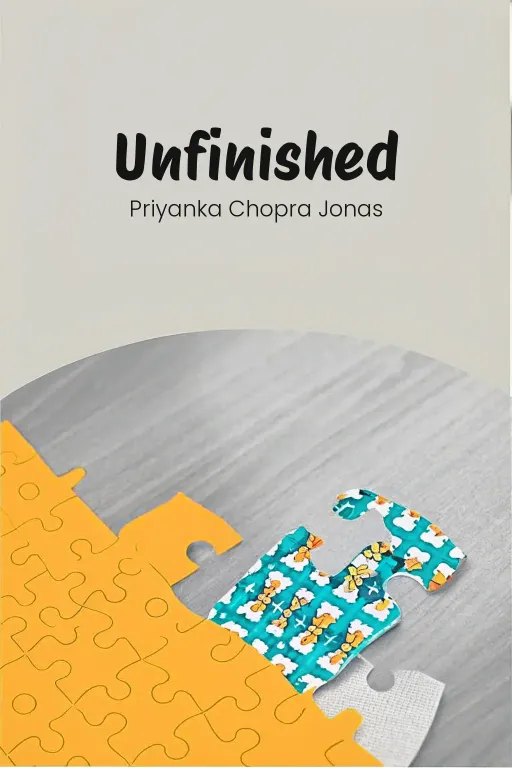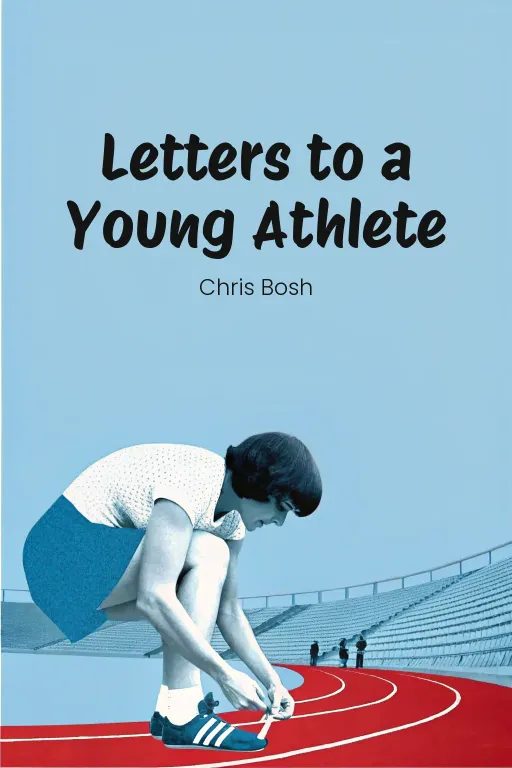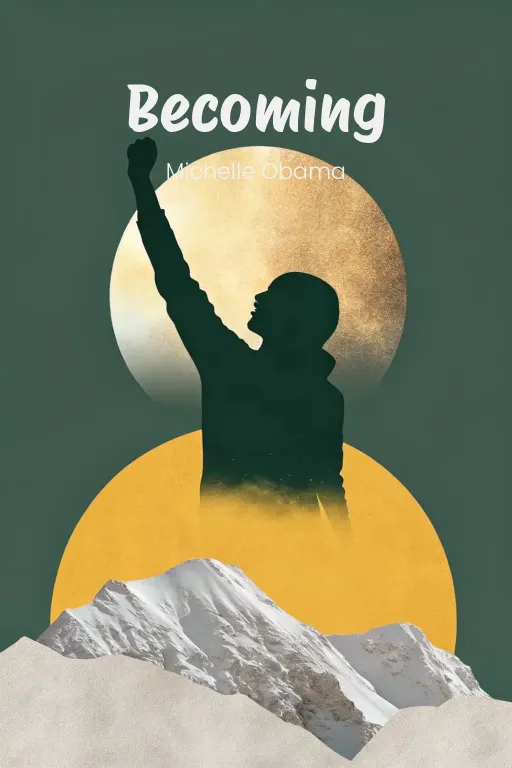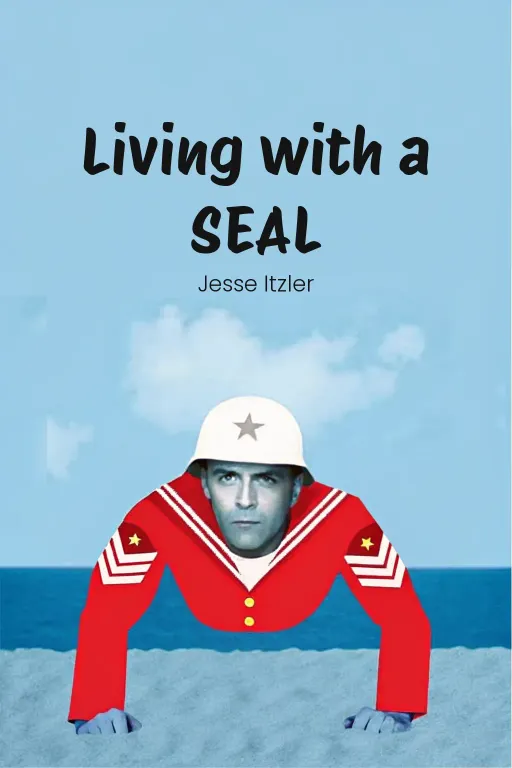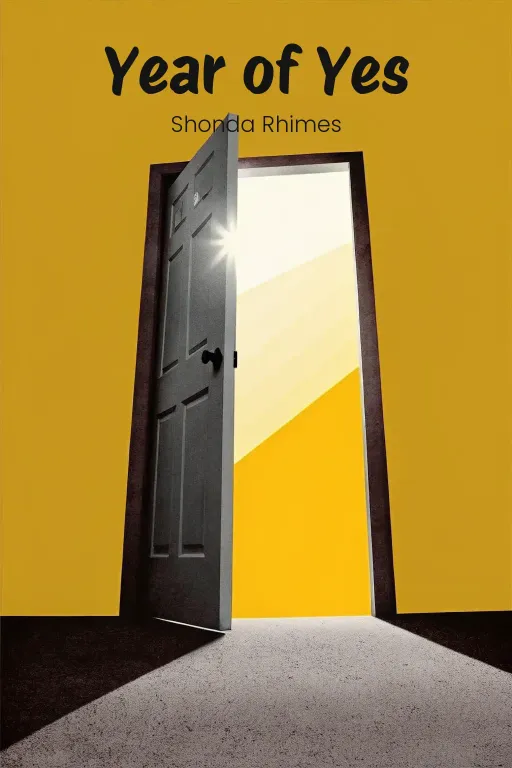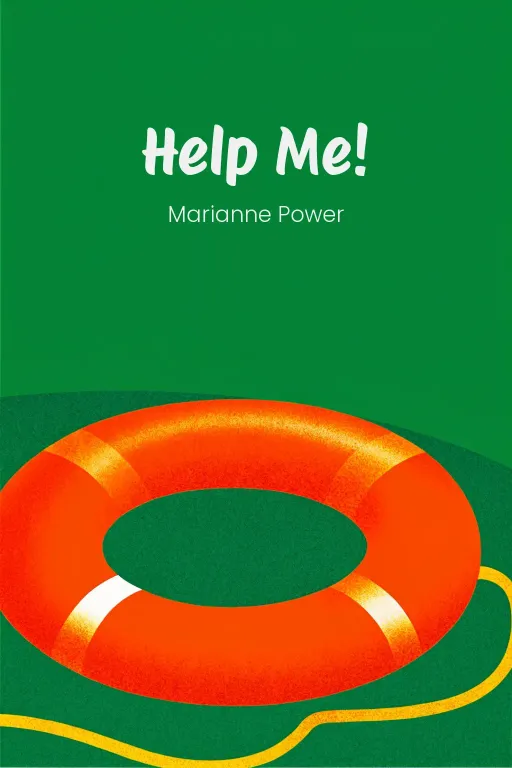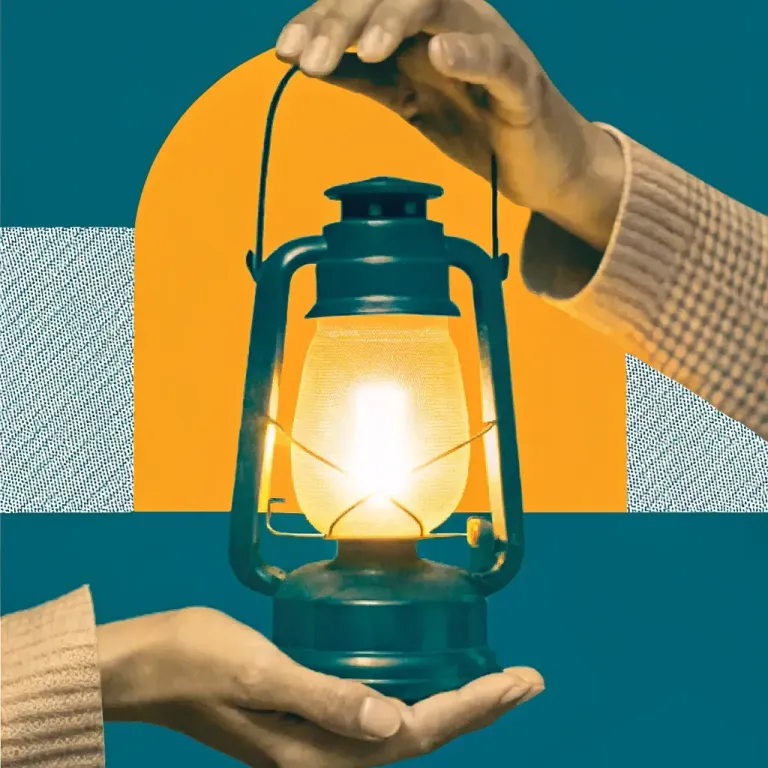
Find Your Grit: Tools for Tough Times
Podcast by Beta You with Alex and Michelle
Overcoming in Uncertain Times
Find Your Grit: Tools for Tough Times
Part 1
Alex: Hey everyone, welcome back! Today we're diving into Michelle Obama's “The Light We Carry”, which is part memoir, part guide to living a more grounded life. Michelle: And honestly, who couldn’t use a little more light these days, right? Between the constant stress, the uncertainty we're all facing, and the never-ending noise of social media, finding some semblance of balance feels almost impossible. Alex: Exactly! So, Michelle Obama walks us through her own journey, from growing up on the South Side of Chicago to navigating life in the White House. And she's figured out how to stay grounded through all the chaos. This isn't just her story, though. It's about the tools, relationships, and, frankly, the courage we all need to live with purpose and resilience. Michelle: So, Alex, what's our plan of attack for this book? Alex: Okay, first, we're going to explore the "tools" she talks about – those everyday little practices that help us stay steady when things get overwhelming. I mean, have you ever thought something as simple as knitting, or even a walking cane, could actually carry so much deeper meaning? Michelle: I'm definitely intrigued. I will admit, though, knitting still sounds like a slightly unusual superpower! Alex: Just wait and see, Michelle, just wait. Next, we'll step into what she calls the 'Kitchen Table,' and that is a metaphor for the community and the relationships that really nurture us. And finally, we'll unpack authenticity – how choosing to be real, even when it's difficult, creates ripples of courage and connection. Michelle: Alright, then – resilience, community, and keeping it real. Sounds like a solid plan. Let's get into it.
Resilience Through Personal Tools
Part 2
Alex: So, when we talk about resilience, Michelle Obama offers such a fresh perspective. She reframes it, not as this abstract, superhero-like trait, but as something really practical, rooted in personal tools and habits. Let's dive into the core idea: resilience through personal practices. Michelle: Right, and that's where her father's cane enters the picture, doesn't it? I mean, it seems simple, just a cane. But Michelle turns it into almost a sacred symbol of strength and adaptation. Alex: Exactly. Her father, Fraser Robinson, faced a long battle with MS, a disease that constantly tested him physically. The cane became more than just a walking aid; it was really a representation of his resilience. Michelle describes it as this silent, steady presence in their family life, almost like a sentinel carrying both the weight of his struggle and the grace with which he embraced life. For her, the cane was inextricably linked to her father’s identity. He didn’t shy away from using it, but he also didn’t let it define him as broken or incapable. Michelle: And that's what resonates with me—it wasn't just about him physically using the cane. It's about what it communicated, right? Like, "Yeah, life threw this at me, but I'm still here, showing up." That's a powerful message, but it's also so understated. There's no drama in it. Alex: Exactly. It’s that quietness that’s so striking. Michelle talks about his ability to laugh, to cheer on basketball games from his chair, to maintain a sense of normalcy. Even when his body failed him—like when she recalls the terrifying moment he fell at home—he managed to keep his dignity. Witnessing him master that delicate balance between vulnerability and perseverance really shaped her. Michelle: It illustrates this idea that resilience isn't about being invincible; it's more about adapting with what you have, right? Fraser Robinson didn't "beat" MS, but he didn't let it rob him of his essence. Alex: Yes! And that’s why these personal tools are so critical. They might seem small, even symbolic, but they help you navigate life’s uncertainties without falling apart. And Michelle doesn’t just use her father’s cane as a metaphor—she introduces her own practice: knitting. Michelle: Knitting, though? I'm still trying to reconcile how the woman who delivered one of the most iconic convention speeches turns to yarn and needles for strength. Alex: It started almost on a whim during the early days of the COVID-19 pandemic—a way to stay busy during a time of chaos. But what surprised her was that knitting didn’t just fill her time; it actually reshaped how she processed her anxiety. Each stitch, each loop of yarn, became this small victory, a way to create order out of disorder. Michelle: Okay, I'll admit, there’s something poetic about that. I mean, it’s manual labor, right? Repetitive, maybe even a bit mundane. But she transforms it into this meditative process of creating something tangible when everything else felt out of control. Alex: Exactly. It’s that tangibility that grounds her. Life during the pandemic felt so amorphous—news kept changing, plans kept getting canceled. But with knitting, there was a rhythm she could control. She says it gave her focus and clarity when nothing else did. Michelle: And if I'm recalling this correctly, she even connects it back to her great-grandmother, Mamaw, right? The one who had to haul a sewing machine on public transport to make ends meet. It’s this multigenerational story of women channeling creativity into survival. Alex: Absolutely. For Mamaw, sewing was as much about making ends meet as it was a quiet act of resilience. And for Michelle, knitting became this unexpected bridge to that legacy—a reminder that resilience often lies in these small, purposeful actions that ground us and remind us of who we are. Michelle: What I find fascinating is how these tools—whether it's her dad's cane or her knitting needles—become so much bigger than their actual function. They're like symbols, almost. Anchors to something deeper, because life can get incredibly chaotic; focusing on these small, steady practices gives you the footing you need to navigate it. Alex: Precisely. And she takes it a step further by showing how knitting gave her clarity during some of her most significant moments. Like when she was preparing for the Democratic National Convention speech in 2020—a high-stakes moment with the country divided, the pandemic raging, and everything feeling completely upended. She relied on that discipline, that focused creation, to find her words and step into the role she needed to play. Michelle: So, the knitting not only calmed her but sharpened her mind—helped her align her purpose with her actions. It's like she was stitching herself into the moment, turning anxiety into clarity, which is...okay, I'm not going to lie, kind of brilliant. Alex: It “really” is. And the broader takeaway she offers is incredibly powerful: resilience doesn’t have to be this grand, dramatic thing. It's often quiet, cultivated through these steady, practical habits that help us adapt and thrive. Her dad’s cane showed how accepting vulnerability can coexist with immense strength. Her knitting needles show how we can create calm and balance, even when the world around us feels like it’s unraveling. Michelle: So, resilience isn't about slaying the dragon in one fell swoop—it’s about picking up the tools we have, one loop, one step, one stitch at a time. I can definitely get behind that.
The Power of Relationships and Community
Part 3
Alex: So, Michelle, this idea of resilience, it naturally flows into how important relationships are, doesn't it? Michelle really emphasizes that it's not just a solo journey; it's about the people and places that hold us up. Michelle: Exactly! I mean, Michelle talks so much about how resilience isn’t just an individual project—it’s built around the people and spaces that support us. Alex: Exactly, and that's where the “Kitchen Table” pops up, right? Such a vivid image. Moving from the “me” to the “we”, she looks at how our relationships and communities actually spark growth. The Kitchen Table isn't just where we eat, it’s a sanctuary, a place for sharing, support, and building that resilience together. Michelle: Yeah, I love the layers behind that. On the one hand, it’s about families gathering—her literal experiences growing up—but it’s also about what the table means. It’s about connection. Alex: Right. For Michelle, the Kitchen Table was the anchor. It's where her family came together, through thick and thin. She talks about navigating tough stuff, like her dad's MS, right there at the table. It became this shared space for vulnerability and strength, finding common ground in those moments. Michelle: And it’s not like MS was this to-be-avoided topic, right? It was there, in the room, shaping everything—but also not becoming the center of their lives. That’s… hard to navigate as a family. Alex: So true. But they just faced it head-on, so naturally. The table became their processing center for that uncertainty. Even though her dad wasn’t one to dwell on limitations, they all knew the daily battles he was facing. And that's what's so amazing—they used the table to acknowledge the struggles but also move forward. Michelle: I think what strikes me most is how ordinary yet profound this metaphor is. People often look for monumental solutions, grand gestures, but here she’s saying something as straightforward as gathering at a table—being present for each other—can be transformative. Alex: It's so universal, isn’t it? Across cultures, generations, communities, we all have our “tables,” be they literal or symbolic. It's where legacies, values, all those traditions are passed down. Michelle shares how those family conversations built her confidence and resilience. And she’s kind of challenging us to create these spaces, make connection and honesty a priority. Michelle: Which brings us to storytelling, right? Because it’s not just about being at the table, but about what happens there. It’s where stories are told, wisdom gets passed down. That, to me, shapes so much of who we are—those shared narratives. Alex: Exactly. Storytelling is the thread linking her personal experiences to this bigger idea of collective resilience. Michelle talks about her great-grandmother, Mamaw. Oh my gosh, I love that story. She carried her sewing machine everywhere on public transport! It wasn't just about making a living, it was a story of sheer determination and resourcefulness facing adversity. Michelle: I love that story because it’s so visual. You can picture her lugging this heavy machine through crowded streets, climbing into buses or trains, all because she refused to let circumstances dictate her worth or her contribution. It’s gritty, it’s real—and it’s deeply inspiring. Alex: Exactly. It's not just the act itself, but what it represents for Michelle. It's like the sewing machine embodied resilience in action. For Michelle, these stories weren’t just family lore—they were reference points, guiding her on how to navigate her own challenges. It’s a reminder that the experiences of those who came before us can fuel our strength today. Michelle: It does put things into perspective. Like, whenever I feel overwhelmed by modern-day challenges, I think: at least I’m not hauling a sewing machine across town. But seriously, it’s about recognizing that you’re part of a legacy. These stories contain lessons on survival and innovation, even if they don’t seem directly applicable at first glance. Alex: Exactly! Storytelling ties us to something bigger. Michelle shares how hearing those stories gave her a sense of continuity. A belief that if Mamaw could endure hardship with grace, then Michelle could too. It's why storytelling at the Kitchen Table is so vital for building resilience. Those shared narratives teach us how to carry our own struggles and see them in the context of larger, collective strength. Michelle: And then she scales this idea outwards, doesn’t she? It’s not just about your literal family or your personal circle—it’s about the broader power of community. That sense of shared connection and collective resilience as a society. Alex: Completely. She talks about her book tour for Becoming as this living example of community connection. She describes these moments as having an almost sacred energy—a reminder that our individual narratives, when combined, form this greater web of belonging. Think about stepping into an arena with people from every background, sharing, listening, connecting. Michelle: That might’ve been my favorite part—how she captures the feeling of those events. Because it’s not just her standing on a stage telling her story; it’s this dialogue between her and everyone in the audience. People show up carrying their own stories, their own struggles, and somehow, in that collective space, everyone feels seen. Even when their experiences are vastly different, they find common ground. Alex: It's such a great example of how storytelling builds empathy and understanding. Michelle’s saying these broader communal platforms, whether they're book tours, public spaces, shared experiences, can be transformative, just like the family Kitchen Table. They are places where resilience isn’t just personal, it's collective. Michelle: And she doesn’t just leave it there. She challenges us to create these moments of connection in everyday life, right? Those seemingly small acts of reaching out, of breaking down silos. Like her story about Denielle, the mom visiting the White House—I don’t know, that one hit me. Alex: Me too. Michelle intentionally steps beyond protocol, beyond that First Lady formality. She comes down the stairs to greet Denielle personally, a small but deliberate act of connection. It's so humanizing! Michelle: And that’s the thing—it’s not about grand gestures but intentional ones. In that one act, she asserts equality, saying: I see you. I respect you. It’s a reminder that connection can be built anywhere, even in places traditionally defined by hierarchy and division. Alex: That’s exactly her point. Whether it’s at the White House or your neighborhood coffee shop, moments of connection are around us if we choose to be intentional. Through these everyday actions, we create belonging and build the networks of support that sustain us. Michelle: So, whether it’s sitting around a Kitchen Table, carrying family stories forward, or just greeting someone with genuine warmth—it’s clear that relationships, intentionality, and shared spaces can help us weather just about anything.
Authenticity and Social Responsibility
Part 4
Alex: So, with the community vibes setting the stage, we dive into authenticity, right? Michelle really gets into authenticity, and it’s not just about feeling good, it’s almost a “duty” to help society grow. Michelle: Exactly! It's not just about saying, "Hey, this is me!" It's about thinking, "How can my true self actually make a difference?" But, Alex, society doesn't exactly hand out awards for being authentic, does it? Often, it’s more like... penalties. Alex: Absolutely. That's where the idea of authenticity as courage comes in. It’s a courageous act to be yourself, especially when society tells you not to be. Michelle: Right, especially for people who are already facing an uphill battle; I mean, most of us have built-up some kind of armor to deal with life, right? Defenses against judgments, prejudices... So how do we stay real while also staying protected? Alex: Right, so central! Michelle talks about knowing when and where to lose the armor. She knew that as a Black woman, she would often be stereotyped. She shared her own experiences with the label of the “angry Black woman.” It wasn't something theoretical for her, people really weaponized her and that label against her. Michelle: Ugh, the “angry Black woman” thing... It's like they're under a microscope, constantly judged. Too strong, they're "angry;" too vulnerable, they're "weak." It's a no-win. Alex: Totally. Michelle saw it happen all the time during Barack’s presidency, every little thing she did was dissected. Instead of walking on eggshells, she chose grace. 'Going high' was all about choosing dignity and not letting negativity win. Michelle: Honestly, she's operating on a higher plane than most of us. "Going high" sounds great, but let's be real, it's exhausting. When folks are "going low" left and right, sometimes you just wanna meet them there, you know? Alex: Right, but she gets that exhaustion, Michelle! Still, staying elevated isn't ignoring injustice or being passive aggressive, it's about keeping control. When she doesn't react in anger, her critics can't define her. She puts that energy into something useful instead. Michelle: Okay, so "going high" isn't dodging conflict, it's... taking back the narrative? Saying, "I see your BS, but I'm building something bigger." Alex: Bingo! It's actually a framework for social responsibility; If we're always reacting to the negative, we can't focus on the work that matters. Things like voter outreach, real conversations, helping our communities. It allows us to stay intentional, even during crazy times. Michelle: So, along with showing up authentically, there's vulnerability. People hear that word and run, but Michelle seems to think it’s a superpower. Alex: Totally flips it on its head! Vulnerability isn't being weak; it’s the strongest move you can make. It's about being honest — even when it’s hard — because that's how you break down walls and really connect. Her Becoming book tour is the perfect example. Sharing her own worries made her relatable. She invited people into her story, and they shared theirs too. Michelle: Right, she could've kept up the perfect First Lady act, but she got real about things like self-doubt and imposter syndrome. Not exactly what you’d expect from someone who seems larger than life. Alex: Exactly. Her authenticity gave permission. People thought, "Wow, even Michelle Obama deals with this stuff? Maybe I'm not alone." Vulnerability creates solidarity, and that connection makes us stronger together. Michelle: Right, like the stories people shared at her townhalls, they showed the whole range of human experience; Underneath it all, they all spoke to the same things. Wanting to be seen, to belong, to matter. We're not as different as we think. Alex: Exactly. And that’s why authenticity is more than just self-help—it’s a bridge. When we show our real sides, even the not-so-pretty parts, we invite others to do the same. And that shared vulnerability creates trust and empathy, which is so crucial for our present. Michelle: Trust and empathy… tough sell these days. But her point is, it's not just possible, it's vital. Which brings me back to "When they go low, we go high." It's not just a personal motto, it’s a call to action. If we respond with integrity, we move forward; Alex: Exactly. And she ties that into the tools we carry, right? Mindfulness, staying grounded, connecting through stories... They’re anchors when the world feels upside down. When we bring that into our communities, we change the culture — one connection, one act of kindness at a time. Michelle: So being authentic isn’t just a personal win, it’s almost our duty. When we show up as ourselves, we encourage others to do the same. Which means real change isn't just a dream—it's inevitable.
Conclusion
Part 5
Alex: So, to sum up, we’ve seen how Michelle Obama’s “The Light We Carry” really gives us a plan for staying strong, connecting with others, and being true to ourselves. Resilience isn’t about being Superman or Superwoman, right? It's about finding those personal anchors – like her dad's cane or her knitting – that help us navigate the rough patches and keep our balance when things get crazy. Michelle: Right, and then there’s the whole community aspect. Whether it's family gathered around the kitchen table or a huge crowd of strangers, Michelle demonstrates how relationships and shared experiences become the cornerstone of resilience for everyone. Alex: Absolutely. And finally, we talked about authenticity – it's not just about being yourself, but using that as a way to make real change in the world. Michelle’s "When they go low, we go high" reminds us to act with integrity, even when it's tempting to sink to a lower level. Michelle: So, the bottom line is this: resilience is cultivated through small, everyday habits; relationships grow stronger through honest communication; and authenticity helps us connect and evolve. The light we carry isn't just for personal use – it's a shared resource that lights the way for others, too. Alex: Precisely! And like Michelle says, when we concentrate on what we can control – our personal tools, our communities, and our truth – we become more resilient. Not just as individuals, but in how we support each other. Michelle: Okay, so find your equivalent of that cane, gather your tribe around your own kitchen table, and start lighting the way. Because if Michelle Obama has taught us anything, it’s that even the smallest actions can create a ripple effect.


